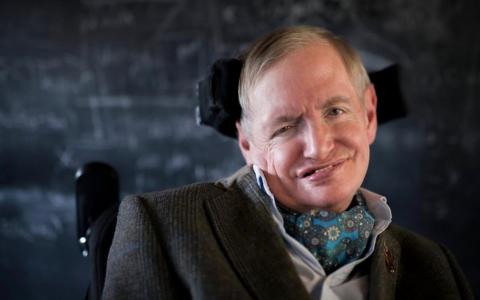
A big brain and a blockbuster book made him wealthy. High upkeep and two divorces were a huge drain. Either way, the final outcome is as close as it gets to an ultimate illustration of the power of planning.
The odds of Stephen Hawking even living to see 1970 were remote. Creating any lasting legacy as his body betrayed him was just about out of the question.
Somehow, he found a way to make a living. It turned out he was a physics genius.
He even managed to monetize the most esoteric and theoretical side of that field by writing an unlikely best seller that’s been in continuous print for three decades and made him a millionaire.
Start with the math
To say “estimates vary wildly” on how much of that money Hawking left behind actually understates the problem. Some people count all those copies of A Brief History of Time, add up the retail price, guess on a royalty split and say he might’ve earned $20-$90 million as a celebrity scientist.
But it can easy cost $200,000 a year to keep someone with motor neuron disease alive. Hawking lived with the disorder close to six decades, ultimately relying on extremely expensive equipment and skilled round-the-clock care as it progressed.
While the British healthcare system is marvelous, those costs aren’t really in the standard budget. Factor them out of Hawking’s career earnings and the real disposable income left to spend or bequeath looks a lot smaller.
(You also can’t ignore the British tax rates that fund that system. Close to half of all income above a typical professor’s standard salary would have gone back to the government.)
Don’t forget that he also had to pay two divorce settlements — and while the UK isn’t a community property country, it also doesn’t respect separate property when it’s time to make the split.
Each divorce could have cut his ultimate net worth in half, even balancing his unusual fixed costs against his narrow but still appreciable celebrity earning power.
All in all, the most realistic estimate I’ve seen for Hawking’s end-of-life wealth clocks in at roughly $5-$7 million, which is really just a polite way of saying he was on the upper edge of “high net worth” without managing to become extravagantly rich.
Maybe he had a little more, maybe he had a little less. He was comfortable.
It makes sense. He was a genius who crossed over from academia, but not in order to invent a new form of billionaire-generating hedge fund. He wrote a best-selling book that paid the bills and a little left over.
Mere millionaire planning
A lot of your clients are in a vaguely similar situation with good-paying, stable jobs or rent-producing assets. At that level, the planning goals are relatively simple: you want to live in comfort and then leave enough cash to heirs or favorite causes to make a significant impact.
They work as long as they can. They live as long as they can.
Hawking couldn’t pursue a lot of career paths. A lot of people with his condition aren’t anywhere near as successful. But most only get 3-5 years for planning once they’re diagnosed, so he was doubly lucky.
It’s like having a lottery winner for a client. You can’t ask how it happened or bank on it happening again. He had a gift that let him accumulate a reasonable amount of career earnings and a long enough career to make it happen.
Arguably he could’ve died at any time. We can all say that. That’s worth reminding your clients as well: they might die earlier than they expect, they may also die a whole lot later.
I’d be curious to hear whether Hawking lived every day with the awareness that it could be his last or whether he insisted that he was immortal. From what we know of his brainpower and his tenacity, it could’ve gone either way.
He planned ahead. He funded a foundation that will outlive him and advance his scientific and medical interests now that he’s gone.
Interesting fact: the foundation sends some kids to space camp and runs research workshops, but it also allocated GBP 100,000 to make sure Hawking himself remained “able to work, teach, write, research and publish.”
While it’s a gross distortion to say he was paying himself a salary, the logic is actually fairly clear. The foundation’s objective is to pursue his research. He did that research. The grants helped him do that research.
And he funded the foundation in life, so the relationship seems to have worked like an annuity with a charitable survivor benefit. He was the beneficiary of the current income on his initial bequest. Now that money needs to be redirected.
He’s also got his kids to look out for. The ex-wives may not get anything, but you never know. We all like to decide where our money goes when we die, allocating rewards as well as snubs. Hawking was vanishingly unlikely to be any different.
He was a tough guy. He could get mean. Like a lot of wealthy people late in life, his home had to be wheelchair accessible.
Would he have tolerated a special needs trust for himself? If he’d done that back in the early 1960s when he was first diagnosed, it’s unlikely he would have ever changed the world the way he did. But maybe he would have done it anyway.



